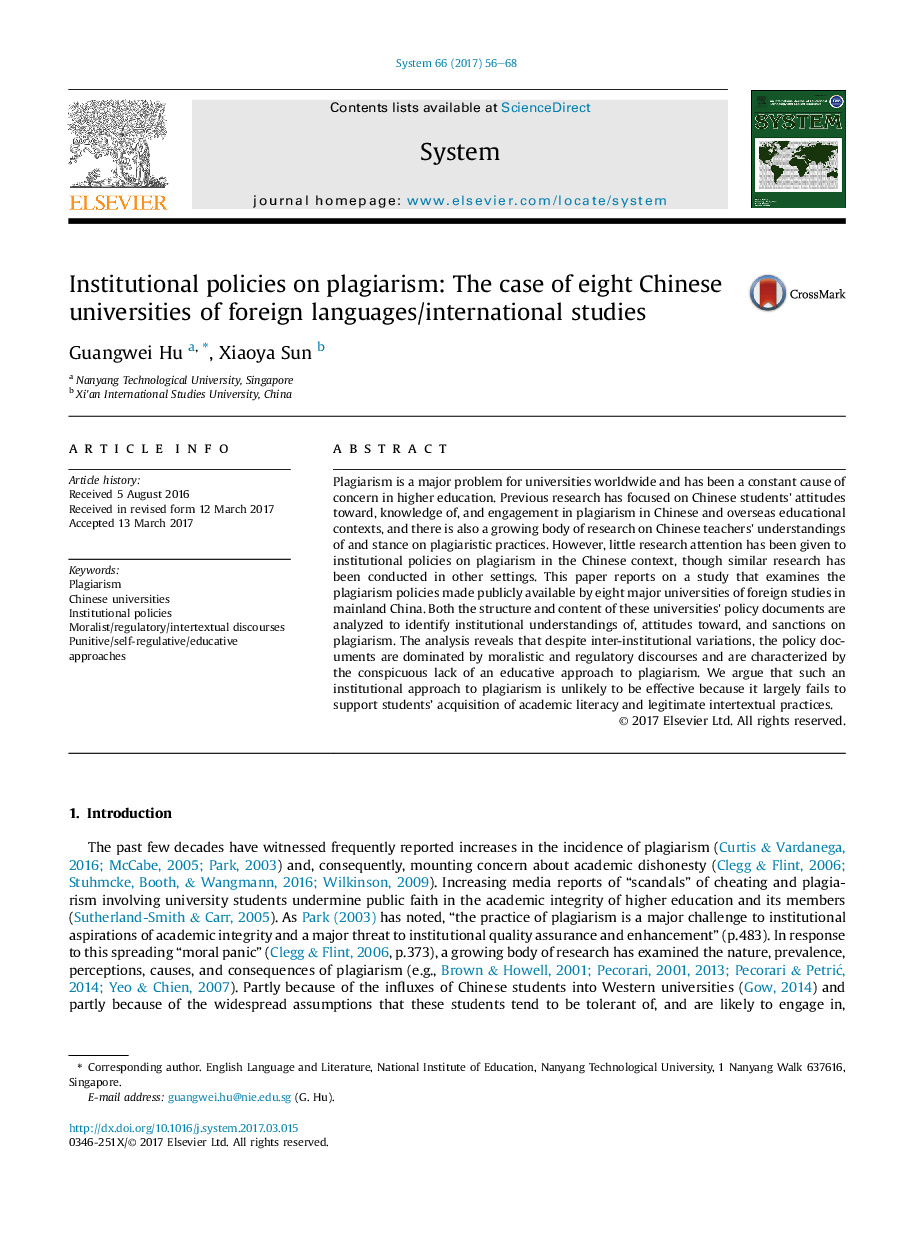ترجمه فارسی عنوان مقاله
سیاست های سازمانی در مورد سرقت ادبی: مورد هشت دانشگاه چینی زبان های خارجی / مطالعات بین المللی
عنوان انگلیسی
Institutional policies on plagiarism: The case of eight Chinese universities of foreign languages/international studies
| کد مقاله | سال انتشار | تعداد صفحات مقاله انگلیسی |
|---|---|---|
| 145086 | 2017 | 13 صفحه PDF |
منبع

Publisher : Elsevier - Science Direct (الزویر - ساینس دایرکت)
Journal : System, Volume 66, June 2017, Pages 56-68
ترجمه کلمات کلیدی
سرقت ادبی، دانشگاه های چینی، سیاست های سازمانی، گفتمان اخلاقی / نظارتی / تعاملی، روش های مجازات / خودتنظیم / آموزشی
کلمات کلیدی انگلیسی
Plagiarism; Chinese universities; Institutional policies; Moralist/regulatory/intertextual discourses; Punitive/self-regulative/educative approaches;

